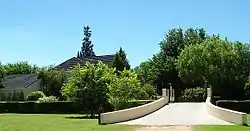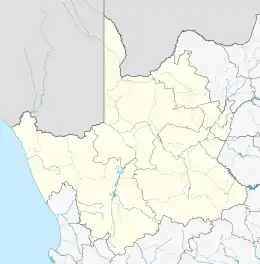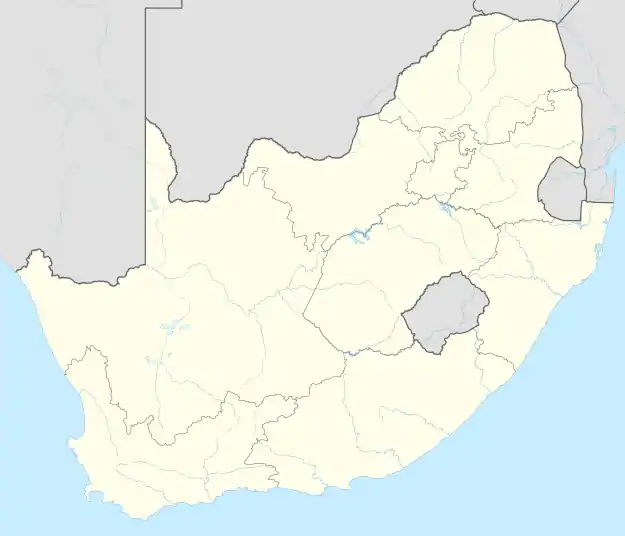Douglas, South Africa
Douglas is an agricultural and stock farming town situated near the confluence of the Orange and Vaal Rivers in the Northern Cape province of South Africa. Notably the rural town has a diverse population, with mostly state institutions and the anchor private employer, GWK, an agricultural company.
Douglas | |
|---|---|
 Douglas suburbia | |
 Douglas  Douglas | |
| Coordinates: 29°03′S 23°46′E | |
| Country | South Africa |
| Province | Northern Cape |
| District | Pixley ka Seme |
| Municipality | Siyancuma |
| Area | |
| • Total | 86.42 km2 (33.37 sq mi) |
| Elevation | 990 m (3,250 ft) |
| Population (2011)[1] | |
| • Total | 20,083 |
| • Density | 230/km2 (600/sq mi) |
| Racial makeup (2011) | |
| • Black African | 32.1% |
| • Coloured | 58.3% |
| • Indian/Asian | 0.8% |
| • White | 8.0% |
| • Other | 0.9% |
| First languages (2011) | |
| • Afrikaans | 93.1% |
| • Tswana | 2.3% |
| • English | 1.5% |
| • Other | 3.1% |
| Time zone | UTC+2 (SAST) |
| Postal code (street) | 8730 |
| PO box | 8730 |
| Area code | 053 |
Location
Douglas lies about 100 km southwest of Kimberley the capital of the Northern Cape. These two are connected by the R357 road.
History
The town was founded in 1848 as a mission station on the farm Backhouse by the Reverend Isaac Hughes,[2] who had been working along the Vaal River since 1845. In 1867, a group of Europeans from Griquatown signed an agreement giving them the right to establish a town. The town was named after General Sir Percy Douglas, Lieutenant Governor of the Cape Colony.
Notable people from Douglas
- Ingrid Jonker, poet
- Hannes Nienaber, journalist